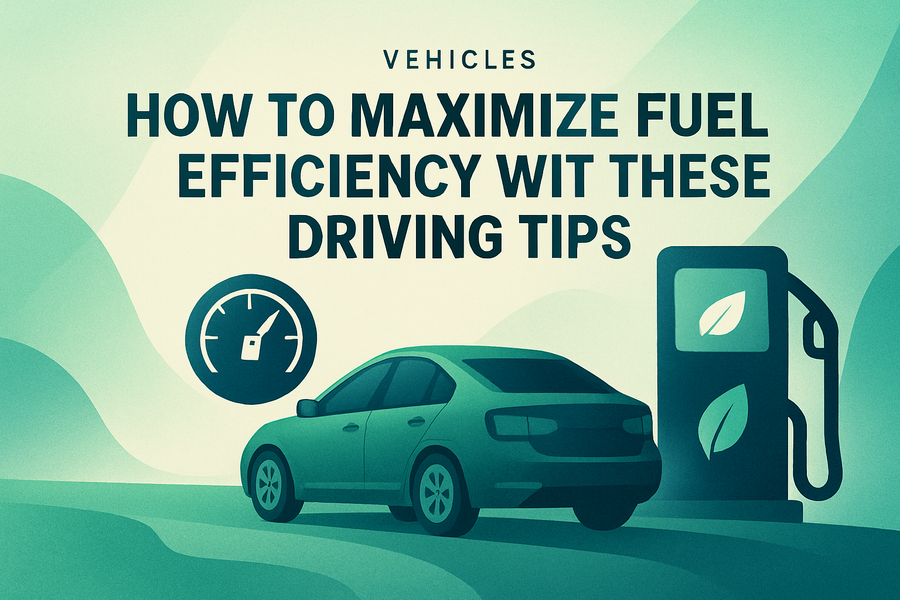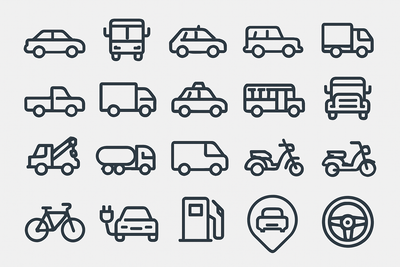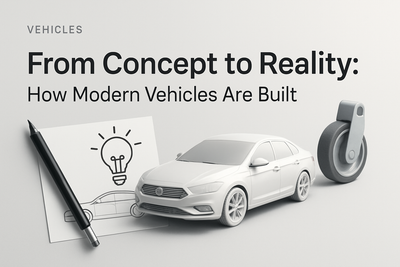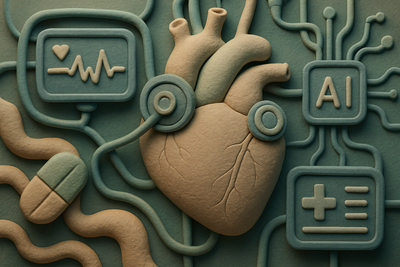How to Maximize Fuel Efficiency with These Driving Tips
Introduction
With gas prices fluctuating and environmental concerns on the rise, maximizing your vehicle's fuel efficiency has never been more important. Whether you're a daily commuter or a weekend road-tripper, improving how efficiently your car uses fuel can lead to significant savings and a reduced carbon footprint. Fortunately, you don’t need a hybrid or electric vehicle to make a difference. By adjusting your driving habits and maintaining your car properly, you can get the most miles out of every gallon.

1. Drive Smoothly and Avoid Aggressive Maneuvers
Rapid acceleration, hard braking, and speeding are major fuel wasters. According to the U.S. Department of Energy, aggressive driving can lower your gas mileage by up to 30% on highways and 40% in stop-and-go traffic. To improve fuel economy:
- Accelerate gradually
- Anticipate stops to minimize braking
- Maintain a steady speed using cruise control on highways
2. Obey Speed Limits
While it might be tempting to shave a few minutes off your commute by speeding, driving faster than necessary burns more fuel. Most vehicles reach optimal efficiency between 50–65 mph. For every 5 mph you drive over 50 mph, it’s like paying an additional $0.20 per gallon for gas.
3. Reduce Idle Time
Idling gets 0 miles per gallon. If you’re stopped for more than a minute (except in traffic), turn off your engine. Modern engines are designed to use less fuel during restarts than during prolonged idling.
4. Keep Your Tires Properly Inflated
Under-inflated tires increase rolling resistance, forcing your engine to work harder and consume more fuel. Check your tire pressure monthly and keep them inflated to the manufacturer's recommended PSI. Properly inflated tires can improve your gas mileage by up to 3%.
5. Lighten the Load
Extra weight in your car means the engine has to work harder, especially in smaller vehicles. Remove unnecessary items from your trunk and avoid carrying heavy rooftop cargo boxes that increase wind resistance and decrease fuel economy.
6. Perform Regular Vehicle Maintenance
A well-maintained vehicle runs more efficiently. Follow your manufacturer's maintenance schedule, which typically includes:
- Replacing air filters
- Using the correct motor oil
- Tuning the engine
- Checking emissions systems
These simple acts ensure your engine performs at its best and consumes less fuel.
7. Use Air Conditioning Wisely
Air conditioning can increase your fuel consumption, especially at low speeds. When driving in the city, consider using the fan setting instead or opening windows slightly. At higher speeds, however, open windows can create drag — so using A/C may be more efficient on highways.
8. Plan and Combine Trips
Cold engines are less efficient, so multiple short trips can use more fuel than a single longer trip covering the same distance. Try to combine errands into one outing and plan routes with minimal traffic or stops.
Conclusion
Improving your vehicle’s fuel efficiency doesn’t require a new car or expensive upgrades — just thoughtful changes in your driving habits and regular maintenance. By adopting these practical tips, you’ll not only reduce your fuel expenses but also contribute to a cleaner environment. Start implementing these strategies today and enjoy the long-term benefits of smarter, more efficient driving.








